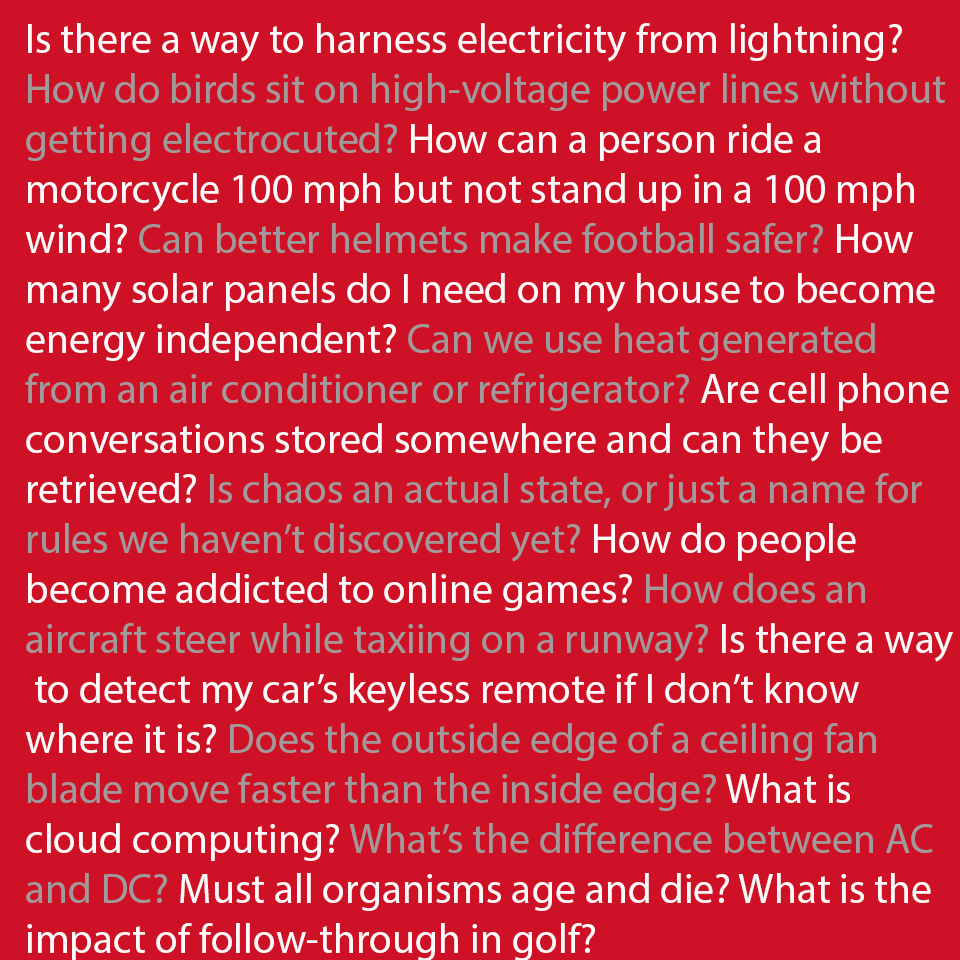When in Doubt, Ask an Engineer
-
-
slice.mit.edu
- 1
Filed Under
Recommended

The School of Engineering’s Ask an Engineer series features engineering-focused questions submitted by the Institute community and answered by MIT engineering faculty, graduate students, and postdocs.
The series began in 2008 and has been periodically featured on Slice of MIT. Ask an Engineer has answered more than 130 diverse questions related to the field of engineering, including automobile aviation, follow-through in golf, and reversing global warming.
The series’ 10 most popular questions are listed below, courtesy of the School of Engineering. View the most popular questions then visit the Ask an Engineer site for the full list. So if you’ve wanted to know how the internet works or why mercury liquid sits at room temperature, just ask an engineer.
- What’s the difference between AC and DC? One looks like a straight line, the other a wave; together, they power your laptop.
- How do birds sit on high-voltage power lines without getting electrocuted? You’ve probably never seen a bird straddle two wires at once, and there’s a good reason for that.
- Is there a way to detect my car’s keyless remote if I don’t know where it is? Maybe—if it’s the right type of remote and and technical know-how. But don’t get your hopes up.
- How does a battery work? A watch, a laptop, and a laser-pointer are all powered by the same thing: chemistry.
- Why is Speed at Sea Measured in Knots? Because 15th-century sailors didn’t have GPS, basically.
- Is fire a solid, a liquid, or a gas? Fire is a chemical reaction in a mixture of incandescent gases. But candle, wood, and propane flames aren’t created equal.
- Why can’t we put metal objects in a microwave? You can, but it’s pointless—and potentially dangerous.
- What’s the difference between a motor and an engine? It all depends how far you go back in time for your definition.
- Can some materials absorb heat with becoming hot? Yes, and they have some surprising uses.
- Why do we sweat more in high humidity? Because muggy weather frustrates your body’s method for shedding heat.
According to the School of Engineering, new questions are always welcome. Visit the Ask an Engineer website for more information on the submission process then browse all the questions. Special thank you to the School of Engineering for providing the top 10 list.








Comments
George Stimmel
Tue, 03/21/2017 12:04pm
I would bet that an entering freshman in Engineering could pass a test with those 10 questions and that 65% would ace it.